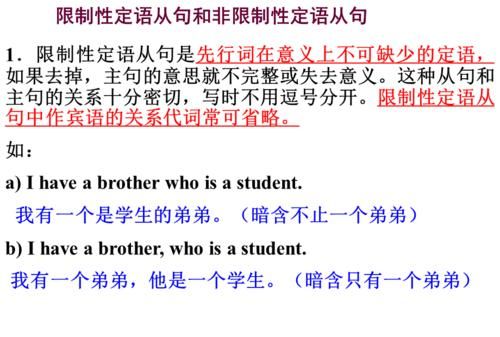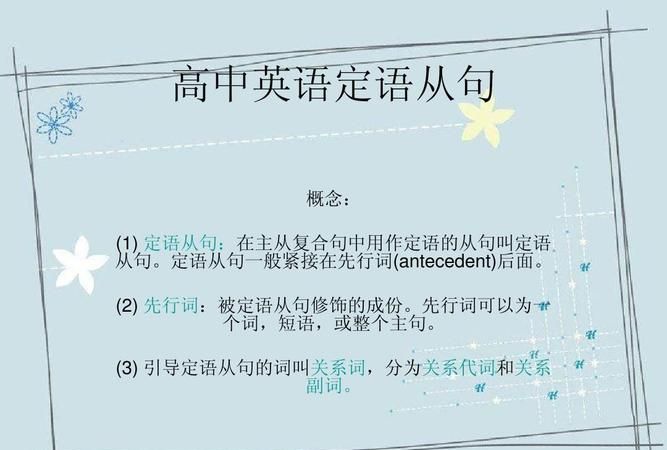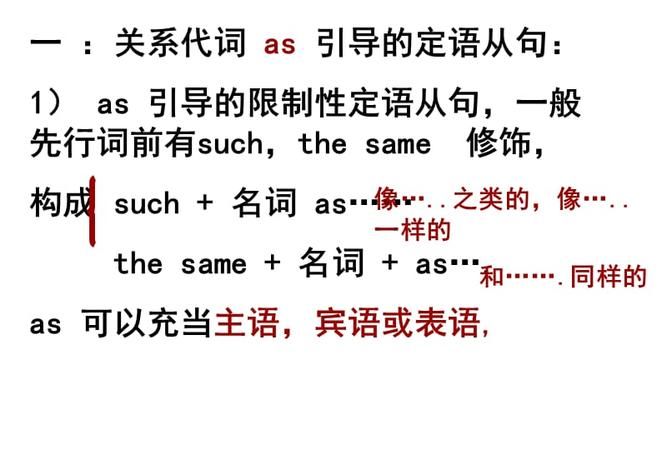本文目录
英语定语从句优美短句子
英语定语从句优美句子
在平时的学习、工作或生活中,许多人对一些广为流传的句子都不陌生吧,句子是能够表达一个相对完整的意思,有一定的语调,表示不同的语气,句未有一个较大停顿的语言单位。句子的类型多样,你所见过的句子是什么样的呢?下面是我为大家收集的英语定语从句优美句子,希望能够帮助到大家。

英语定语从句优美句子:
Love is a lamp,while friendship is the shadow.When the lamp is off,you will find the shadow everywhere.Friend is who can give you strength at last.
爱情是灯,友情是影子,当灯灭了,你会发现你的周围都是影子.朋友,是在最后可以给你力量的人.
One may fall in love with many people during the lifetime.When you finally get your own happiness,you will understand the previous sadness is kind of treasure,which makes you better to hold and cherishthe people you love.
一个人一生可以爱上很多的人,等你获得真正属于你的幸福之后,你就会明白一起的伤痛其实是一种财富,它让你学会更好地去把握和珍惜你爱的人.
When tomorrow turns in today,yesterday,and someday that no more important in your memory,we suddenly realize that we are pushed forward by time.This is not a train in still in which you may feel forward when another train goes by.It is the truth that we've all grown up.And we become different.
当明天变成了今天成为了昨天,最后成为记忆里不再重要的某一天,我们突然发现自己在不知不觉中已被时间推着向前走,这不是静止火车里,与相邻列车交错时,仿佛自己在前进的错觉,而是我们真实的在成长,在这件事里成了另一个自己.
英语定语从句名言:
1.He,who knows nothing but pretends to know everything,is indeed a good-for-nothing.不懂装懂,永世饭桶.
2.He that is ill to himself will be good to nobody.人不自爱,焉能爱人?
3.He laughs best who laughs last.谁笑在最后,谁笑得最好.
4.He who makes no mistakes makes nothing.从不犯错误的人一事无成.
5.He that can read and meditate will not find his evenings long or life tedious.会读书思索的人不会感到长夜无聊或生活乏味.
6.He that gains time gains all things.谁赢得时间,谁就赢得一切.
7.He is the best general who makes the fewest mistakes.—Hamilton 错误犯得最少的将军就是最好的将军.——汉密尔顿
8.He who nothing questions,nothing learns.什么也不问的人什么也学不到.
9.He that is master of himself will soon be master of others.能自制者方能制人.
10.He that travels far knows much.行万里者,见多识广.
11.He that cannot ask cannot live.万事不求人,哪里能生存?
12.A friend is someone who knows all about you and still loves you.朋友就是这样的人——他了解你的一切而仍然喜欢你.
13.All is not gold that glitters.闪闪发光者,未必皆黄金.
14.All’s well that ends well.结果好就一切都好.
15.God helps those who help themselves.自助者天助.
16.Opportunity & luck always shows appreciation for those who are bold in struggling.机遇和幸运总是垂青勇于奋斗的
人.
17.It is the peculiarity of knowledge that those who really thirst for it always get it.凡真正渴求知识者总能得之,这就是知
识的.独特之处.
18.Those who make most people happy are the happiest in the world.—Karl Marx 能使大多数人幸福的人是世界上最幸福
的人.——卡尔·马克思
19.Those who find faults with others often lose their glamour.—Gorky 爱找别人阴暗面的人,自己也常常失去魅力.——
高尔基
20.He conquers twice,who upon victory overcomes himself.—Francis Bacon 在获得胜利之后而能克制自己的人,获得了双重的胜利.——弗朗西斯·培根
一、什么是定语从句
阅读下列句子,找出哪一句是定语从句
1. My doctor told me to live where the air is fresh .
2. Tom was sleeping when the door bell rang .
3. Do you remember the teacher who taught us English at middle school?
4. Can you tell me when the Flight 5571 will depart?
在复合句中充当定语的从句叫定语从句。定语从句的作用相当于形容词,用来修饰主句中的某一个名词或代词或整个句子。被定语从句修饰的词叫先行词,定语从句一般紧跟在它所修饰的先行词之后。因此,通常定语从句被视为一个句子与一个名词的关系。在先行词和定语从句之间起连接作用的叫关系词。关系词有关系代词和关系副词两种。
例如:
He is the boy who often goes to school late.
注意
关系词在定语从句中的三大作用:
1.连接作用———连接先行词和定语从句。例如:
I gave her all the money that I had .我把我所有的钱都给了他。(that连接先行词money和定语从句I had).
2.替代作用———在定语从句中替代从句所修饰的先行词。例如:
The man who lives next door is a famous teacher.
2.成分作用———在定语从句中作主语、宾语、定语或状语。例如:
I like pictures which are painted in the traditional Chinese style.我喜欢传统的中国画(which在定语从句中作主语)。
二、关系代词和关系副词的用法
阅读下面的句子,根据从句的语法特点将其归类,幷把句子序号表格填入空缺处。
1. She is the old woman that witnessed the accident this morning .
2. Mary is the girl who works in Japan .
3. Is this the key which you are looking for.?
4. October 1,1949 is the day when New China was founded.
5. The house which stands on the top of the hill was built last month .
6. The student whom the teachers are talking about has won the first prize in the English contest.
7. He lied to the police officer,which made things even worse.
8. This magazine belongs to the teacher who teaches us history.
9. Tom is reading in the room where the others are watching TV .
10. He failed in the exam,which surprised us all.
11. I don’t know the reason why she looks unhappy today.
12. I’ll never forget the day when I joined the League .
13. He’s got himself into a dangerous situation where he is likely to lose control over the plane .
关系代词和关系副词的用法
定语从句类型特点句子序号由关系代词which /that /who/whom引导关系代词在从句中作主语关系代词在从句中作宾语。
关系代词which指代前句所属之事由关系副词when /where/why引导定语从句中不缺主语或宾语;when /where /why充当从句的时间、地点、原因状语。
Where所指代的是一个抽象的地点,例如某一种情况、某一个领域。
巩固练习
完成句子
1. Alexander Bell was the man _______________________(发明电话的人)。
2. The present ____________________________________(她生日那天我送她的)is still unopened.
3. Carol said the work would be done by October.__________________________,(我对此十分怀疑)。
4. The film brought the hours to me __________________________________(当时我得到很好的照顾)in the faraway village .
5. We are living in an age ______________________________(我们生活在一个很多事情需要用电脑来做的时代)。
单项选择
1. Do you still remember the chicken farm _________________we visited three months ago .
A where B when C that D what
2. Women _______drink more than two cups of coffee a day have a greater chance of having heart disease than those _______don’t.
A who / B / who C who who D / /
3. Helen was much kinder to her youngest son than to the others,_______,of course,made the others envy him .
A who B that C what D which
4. If a shop has chairs _______women can park their men,women will spend more time in shop .
A that B which C when D where
5 I work in a business _________almost everyone is waiting for a great chance .
A how B which C where D that
三、关系词使用的注意事项
引导定语从句的关系词的选用比较复杂。除了牵涉到所指的先行词是人还是物,所引导的定语从句是限制性的还是非限制性的,以及关系词在从句中充当什么句子成分外,还要根据习惯用法而定。
(一)只能使用that,who,whose的定语从句。
请阅读以下句子,根据用法分类,将句子序号填入表格中适当的位置。
1. This is the longest bridge that I have ever seen .
2. I happened to be the thousandth guest that visited the great hotel .
3. He talked about the teachers and schools that he had visited .
4. Who is the man that came this morning .
5. Which is the bag that you lost .?
6. He is the very person that the police are looking for.
7. This is the only thing that I can remember .
8. Tell us everything that you know,please.
9. Is there anything that you don’t understand?
10. All that glitters is not gold .
11. Anyone who breaks the law shall be punished.
12. His mother,who loves him very much,is strict with him.
13. Here is the boy who wants to see you .
14. Those who are against the plan put up your hands please.
15. Mary is the girl whose parents work in Japan .
16. Last week I bought a car,whose price is reasonable .
01定语从句基本概念
在复合句中,修饰名词或代词的从句叫定语从句。
引导定语从句的词叫关系词。
被修饰的名词或代词叫先行词。定语从句一般放在先行词的后面。
02定语从句的关系词
引导定语从句的关系词有关系代词和关系副词。
常见的关系代词包括that, which, who(宾格whom,所有格whose),as 等。
关系副词包括where, when, why等。关系代词和关系副词放在先行词及定语从句之间起连接作用,同时又作定语从句的重要成分。
03定语从句的分类
根据定语从句与先行词的关系,定语从句可分为限制性定语从句及非限制性定语从句。
1. 限制性定语从句紧跟先行词,主句与从句不用逗号分开,从句不可省去。例如:
Any man that / who has a sense of duty won’t do such a thing.
任何有责任感的人都不会做这样的事。
2. 非限制性定语从句主句与从句之间有逗号分开,起补充说明作用,如省去,意思仍完整。例如:
The house,which we bought last month,is very nice.
这幢房子很漂亮,是我们上个月买的.
注意:非限定性定语从句中不能使用关系代词 that。
04关系代词的用法
1. that
that既可以用于指人,也可以用于指物。在定语从句中作主语、宾语或表语,作宾语可省略。例如:
Mary likes music that is quiet and gentle.
玛丽喜欢轻柔的音乐。(that作主语)
The coat (that) I put on the desk is blue.
我放在桌子上的那件外套是蓝色的。(that作宾语)
2. which
which 用于指物,在句中作主语、宾语或表语,作宾语可省略。例如:
The building which stands near the train station is a supermarket.位于火车站附近的那座大楼是一家超市。(作主语)
The film (which) we saw last night was wonderful.
我们昨天晚上看的那部电影很好看。(作宾语)
3. who, whom
who, whom 用于指人,who 用作主语和表语,whom用作宾语。在口语中,有时可用who代替whom,也可省略。例如:
The girl who often helps me with my English is from England.
经常在英语方面帮助我的那个女孩是英国人。(who 作主语)
Who is the teacher (whom) Li Ming is talking to?
正在与李明谈话的老师是谁?(whom 作宾语)
4. as
① 引导限定性定语从句时,指与先行词相似的人或物,必须用于 such/so...as...或 the same...as...结构中,例如:
Such people as were mentioned by him were honest.
被他提到的这样的人是诚实的。
Last term our maths teacher set so difficult an examination problem as none of us worked out.
上学期我们数学老师出了一道我们没有一个人会的数学题。
This is the same bag as I lost yesterday.
这是和我昨天买的包一样的包。
② 引导非限定性定语从句时,只能修饰句子,可置于被修饰句子后面、前面或主谓之间,翻译成“正如...那样”例如:
The earth moves around the sun, as we all know.
As we all know,The earth moves around the sun.
The earth, as we all know, moves around the sun
③ 在非限制性定语从句中,which和as引导定语从句时的区别:
a. which引导的从句不能放在主句前,而as引导的从句则既可以放在主句前,也可以放在主句后,还可以放在主谓之间。
b. as和which都可以指代一个句子,但as有“正如”、“就像”之意,which则没有此含义。
c. as 引导的非限定定语从句只能修饰句子,which 引导的非限定性定语从句可以修饰句子,也可以修饰名词。
注意
1. 当定语从句中含有介词,介词放在句末时,who,whom, that,which可省略,但介词在关系代词前时,只能用“介词+which/whom”结构。例如:
This is the house in which we lived last year.
这是我们去年居住的房子。
Please tell me from whom you borrowed the English novel.
请告诉我你从谁那借的这本英文小说。
2. 含有介词的固定动词词组中,介词不可前置,只能放在原来的位置上。例如:
This is the person whom you are looking for.
这就是你要找的那个人。
3. 关系词只能用that的情况:
① 先行词被序数词或形容词最高级所修饰,或本身是序数词、形容词最高级时,只能用that,而不用which.例如:
He was the first person that passed the exam.
他是第一个通过考试的人。
当先行词指人时,偶尔也可以用关系代词who。
② 被修饰的先行词为all, any, much, many, everything, anything, none, the one等不定代词时,只能用that,而不用which.例如:
Is there anything that you want to buy in the shop?
你在商店里有什么东西要买吗?
当先行词指人时,偶尔也可以用关系代词who。
③ 先行词被the only, the very, the same, the last, little, few 等词修饰时,只能用that,而不用which。例如:
This is the same bike that I lost.
这就是我丢的那辆自行车。
注意: 当先行词指人时,偶尔也可以用关系代词who。例如:
Wang Hua is the only person in our school who will attend the meeting.
王华是我们学校唯一将会出席这个会议的人。
④ 先行词里同时含有人或物时,只能用that.例如:
I can remember well the persons and some pictures that I saw in the room.
我能清楚记得我在那个房间所见到的人和一些照片。
⑤ 以who或which引导的特殊疑问句,为避免重复,只能用that.例如:
Who is the girl that is crying?
正在哭泣的那个女孩是谁?
⑥ 主句是there be 结构,修饰主语的定语从句用that,而不用which.例如:
There is a book on the desk that belongs to Tom.
桌子上那本书是汤姆的。
4. 关系词只能用which,而不用that 的情况:
①先行词为that, those时,用which, 而不用that.例如:
What’s that which is under the desk?
在桌子底下的那些东西是什么?
②关系代词前有介词时,用which,而不用that.例如:
This is the room in which he lives.
这是他居住的房间。
③引导非限制性定语从句,用which, 而不用that.例如:
Tom came back, which made us happy.
汤姆回来了,这使我们很高兴。
05关系副词的用法
1. when指时间,其先行词表示时间,在句中作时间状语。例如:
This was the time when he arrived.
这是他到达的时间。(when=at which)
2. where指地点,其先行词表示地点,在句中作地点状语。例如:
This is the place where he works.
这是他工作的地点。(where=at /in which)
3. why 指原因,其先行词是原因,起原因状语作用。例如:
Nobody knows the reason why he is often late for school.
没人知道他为什么上学总迟到。(why=for which)
;英语名言警句励志
英语谚语:
1. Do as the Romans do.
入乡随俗。
2.Actions speak louder than words.
事实胜于雄辩。
3.A friend in need is a friend indeed.
患难见真情。
4.A good beginning is half done.
良好的开端是成功的一半。
5.All roads lead to Rome.
条条大路通罗马。
定语从句:
1.I like the book which/that he bought for me.
我喜欢他给我买的那本书
2.He is my friend whose father is our headmaster.
他是我的朋友,他爸爸是我们的校长
3.She is the girl whom I'm looking for.
她就是我正在找的那个女孩
4.This is the factory which/that he visited last week.
这是他上个星期参观的那家工厂
5.It is a beautiful song which/that is sung by a famous singer.
这是一首非常好听的歌,是由一位著名歌星演唱的

定语从句的英语谚语
定语从句的英语谚语
1.He who has a mind to beat his dog will easily find his stick.
欲加之罪,何患无辞。
2.The fire which lights us at a distance will burn us when near.
火在远处是明灯, 火在近处烧灼人。
3.Everything is ready, and all that we need is an east wind.
万事俱备,只欠东风。
4.He who plays with fire gets burned.
玩火者必自焚。
5.He that serves God for money will serve the devil for better wages.
为金钱侍奉上当的人,必然会为更多的钱去替魔鬼效劳。
6.God helps those who help themselves.
自助者天助。
7.Nothing in the world is difficult for one who sets his mind to it.
世上无难事,只怕有心人。
8.He that has been bitten by a serpent is afraid of rope.
一朝被蛇咬,十年怕井绳。
9.He who doesn’t play for the future will find trouble at his doorstep.
常将有日思无日,莫到无时思有时。
10. Those who submit will prosper, those who resist shall perish.
顺我者昌,逆我着亡。
11. He who laughs best laughs last.
最后笑的人笑得最好(谁笑在最后,谁笑得最好)(别高兴得太早)
12. He who laughs at crooked men should need to walk very straight.
要笑别人驼,自己就得挺起胸膛走路。
13. He that respects not is not respected.
不尊重别人者,也不会被别人尊重。
14. He that eats the king’s goose shall be choked with the feathers.
吃了别人的嘴软。
15. There are none so deaf as those who will not hear.
不肯听别人意见的人才是最聋的人。
16. One who never made a mistake never made anything.
不犯错误的人必然一事无成。
17. The mill cannot grind with water that is past.
逝去的水不能再使磨轮转动。(机不可失,时不再来)
18. He lives long that lives well.
活得好就是活得长。(生活有价值就是长寿)
19. He who would climb the ladder must begin at the bottom.
千里之行始于足下。
20. He that is ill to himself will be good to nobody.
不能自爱,焉能爱人。
21. They (people) who live in glass houses should not throw stones.
自己有缺点,就别说别人的坏话。
22. They that reckon without their host are to reckon twice.
店主不在便结帐,还得再结第二遍。
23. One man may lead a horse to water, but ten men cannot make him drink.
一个人可以把马牵到河边,但是十人也无法逼它喝水。
24. He that desires honour is not worthy of honour.
想荣誉的人不值得尊重。
25.He who does not reach the Great Wall is not a true man.
不到长城非好汉
26. He who laughs last laughs best.
谁笑到最后,谁笑得最好.
27. All is well that ends well.
结局好,一切都好.
28. All that glitters is not gold.
闪闪发光的不都是金子.
29. The hands that push cradles are the hands that push the world.
推动摇篮的手,就是推动世界的手.
30.He who knows others is learned,and he who knows himself is wise.
知人者智,自知者明.
31. He who loves others is constantly loved,and he who respects others is constantly respected.
爱人者人恒爱之,敬人者恒敬之.
32. True friendship is like sound health,the value of which is seldom known until it is lost.
真正的友谊犹如健康的身体,失去时方知其可贵.

英语名言 含定语从句的举例
1.All
is
not
gold
that
glitters.
闪闪发光者,未必皆黄金。
2.All’s
well
that
ends
well.
结果好就一切都好。
3.God
helps
those
who
help
themselves.
自助者天助。
4.Opportunity&luck
always
shows
appreciation
for
those
who
are
bold
in
struggling.
机遇和幸运总是垂青勇于奋斗的人。
5.It
is
the
peculiarity
of
knowledge
that
those
who
really
thirst
for
it
always
get
it.
凡真正渴求知识者总能得之,这就是知识的独特之处。
6.Those
who
make
most
people
happy
are
the
happiest
in
the
world.—Karl
Marx
能使大多数人幸福的人是世界上最幸福的人。——卡尔·马
克思
7.Those
whofindfaults
with
others
often
lose
their
glamour.—Gorky
爱找别人阴暗面的人,自己也常常失去魅力。——高尔基
8.He
conquers
twice,who
upon
victory
overcomes
himself.—Francis
Bacon在
获得胜利之后而能克制自己的人,获得了双重的胜利。
——弗朗西斯·培根

以上就是关于带有定语从句的英语名言 ,英语定语从句优美短句子的全部内容,以及带有定语从句的英语名言 的相关内容,希望能够帮到您。

